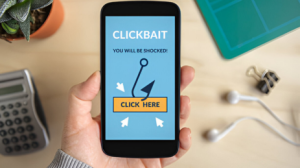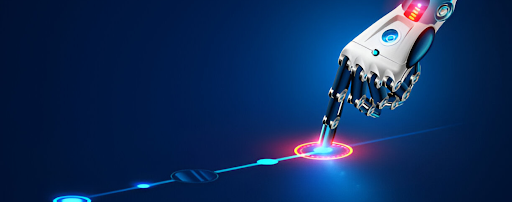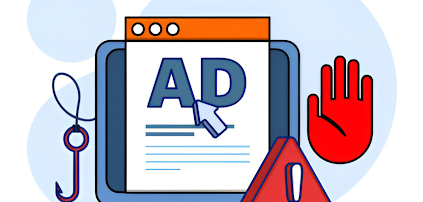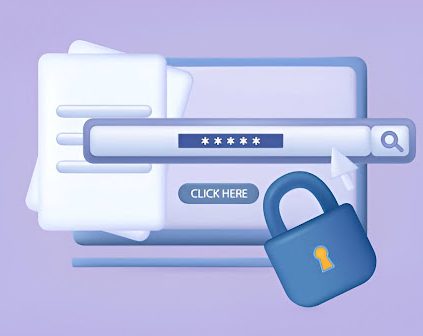Software programs known as “bots” are utilized for a variety of internet tasks. There is also a significant portion of malicious bot activity, even if the majority of the work done by bots is beneficial, such as performing repetitive tasks or gathering data.
Click bots are becoming a more serious threat, whether they are used to transmit malware and dangerous software or to inflate clicks on internet advertisements. However, what impact do these click bots have on your internet business? Let’s talk about each of these points in this piece.
What is a click bot?
A click bot is a type of bot made especially to click on links on the internet and perform other basic click-based tasks.
In order to display advertisements on a website or in a mobile app, these bots will navigate to a designated page and click the desired link, which might be anything from a social network post or account.
Since their actions can be distinguished from those of humans, these click bots are the most straightforward to identify.
More sophisticated click bots, on the other hand, are able to mimic human user behavior, including mouse movements, pausing, spending more time on a website, and engaging in more erratic activities or durations on a webpage.
While some click bots are useful, the majority are employed to commit click fraud, also known as ad fraud. Although financial gain is the main reason why click bot frauds are committed, some hackers may also use click bots to harm advertising without earning any money.
How do Click Bots Work?

Click bots work by mimicking how a human user would click on digital components like PPC adverts, banner ads, and web links. To varied degrees of complexity, these bots are made to imitate human behavior. Investigating their underlying mechanisms and the technology that makes them possible is crucial to comprehend how they work.
This is a basic explanation of how they operate:
-
Automated Clicks
Consider a click bot as a small computer software that visits websites and clicks on advertisements on its own. It repeatedly does this action.
-
Mimicking Humans
Some click bots are intelligent enough to mimic human behavior. They are more difficult to identify since they roam around the page, take breaks, and behave erratically rather than just clicking on advertisements continuously.
-
Working in Teams
Click bots can operate independently or in large groups. In a group (referred to as a botnet), they can be on numerous computers worldwide, clicking on advertisements to give the impression that many distinct persons are clicking.
-
Staying Hidden
The intelligent click bots aim to avoid detection. They can even conceal their actual location by posing as people from other locations and altering their clicking behaviors.
-
Why They Click
These bots typically click on advertisements for two reasons: either to generate revenue by clicking on website ads or to squander advertising funds by clicking on adverts without any genuine interest in the goods.
How do they Affect Ad Campaigns?

-
Draining Advertising Budgets
The waste of advertising funds is the most direct result of click bots on advertising efforts. The advertiser pays for each click a bot makes on a pay-per-click (PPC) ad, but unlike a genuine potential client, a bot never buys anything.
This lowers the ad campaign’s overall return on investment (ROI) because the money invested in these clicks is squandered.
-
Skewing Data and Analytics
The data that advertisers use to gauge the effectiveness of their ads are distorted by click bots. Click-through rates (CTRs) and engagement metrics are inflated by large numbers of false clicks, providing a false impression of an advertisement’s effectiveness.
Advertisers may decide to target the wrong audience or increase their investment in underperforming ads as a result of this inaccurate data.
-
Damaging Campaign Effectiveness
High levels of bot traffic can drastically reduce campaign conversion rates because bots don’t turn into leads or sales. This has an impact on the campaign’s efficacy and makes it difficult to determine whether campaign components are truly connecting with actual users.
-
Increasing Cost-Per-Click (CPC)
Increasing click activity can raise the cost-per-click for bidding-based PPC platforms, such as Google Ads. Not only are bots wasting your money when they click on your advertising, but they may also raise the cost of your subsequent ad placements.
-
Harming Brand Reputation
The reputation of your brand may suffer if a sizable amount of the traffic to your campaign is false.
Amid falsely exaggerated traffic, real users can have a difficult time finding your content, and if they do, the apparent lack of interaction from actual people could damage your brand’s credibility.
-
Impacting Competitor Campaigns
An unfair competitive environment may result from competitor click fraud, which involves using bots to target a rival’s advertisements. For the impacted rivals, this unethical activity may result in higher advertising expenses and squandered budgets.
-
Affecting Ad Network Relationships
Relationship tension with ad networks might result from persistent click fraud. Ad networks may flag an advertiser’s account for additional investigation or, in extreme circumstances, account suspension if a sizable portion of traffic is determined to be fake.
Ways to Prevent Click Bot-Related Fraud
- Run Ads at Specific Times
Plan your advertisements to show up when your target audience is most interested, and there is a higher likelihood of real engagement. Because click bots frequently function outside of regular consumer browsing hours, this can lessen exposure to them.
- Try Remarketing Campaigns
Remarketing campaigns target website visitors who have shown interest in your products or services. By targeting more qualified, previously engaged users with your ad expenditure, this tactic lowers the possibility of false clicks.
- Monitor Traffic Regularly
Pay careful attention to your campaign’s analytics. Unusual high click-through rates, sudden spikes in traffic without commensurate increases in conversions, or an influx of visitors from unrelated regions can all be signs of click fraud.
- Use Fraud Detection Software
Purchase specialized software to identify click fraud. These solutions help you detect and respond to possible click fraud more effectively by providing sophisticated monitoring features and automatically flagging questionable activity.
- Implement CAPTCHA on Landing Pages
Bots can be stopped by including CAPTCHA verification on your landing pages. CAPTCHAs serve as a barrier to stop automated clicking programs from doing the required activity on your website since they require activities that bots usually cannot reproduce.
- Regularly Update Ad Strategies
Wanna stay one step ahead of scammers? It’s simple! Just keep upgrading your Ads click campaigns on a regular basis and stay up to date on the most recent developments that are happening related to click fraud.
This entails varying your ad platforms, trying out various ad formats, and always improving your targeting specifications.
Conclusion
We’ve looked at the different ways that Adwords click bot can harm your advertising campaigns and offered practical advice on how to safeguard your company.
You may greatly lower your risk of being a victim of click fraud by putting the above measures into practice, such as employing third-party technologies to identify and block fake clicks, establishing stringent budget limitations, keeping an eye on traffic sources, and routinely upgrading ad tactics.
Remember, vigilance for prevention & proactive measures for protection are key in safeguarding your ad budget!
FAQs
How do I block clickbots?
Utilize Ads protection software, employ CAPTCHA mechanisms, set up IP exclusions, etc.
Who is a clicker scammer?
The term “clicker scammer” describes a human or computer that engages in click fraud.
Do bots click links?
Yes, bots do click links. Click bots, especially auto click bots are designed to mimic human clicks on a variety of links, such as those found in emails, advertisements, and online pages.
Ads Protection Auto Click Bots click bots Click Bots Online
Last modified: December 27, 2024





